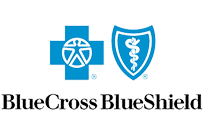A list of common questions and answers.
Pre-Treatment
It’s likely that if you’re reading this, you or someone you know is tired of the way your life is at the moment. Addiction can take many forms and is often difficult to identify within oneself. You may benefit from treatment if you fit any of the following criteria:
You’ve been unsuccessful in your attempts to quit on your own.
It’s difficult to imagine how you will cope without drugs or alcohol.
Your addiction has negatively affected areas in your life such as job, relationships, or health.
The need for change is there, but you just don’t know where to start.
You have experienced withdrawal symptoms when attempting to stop using.
The goal of treatment extends further than being physically clean and sober. The real purpose is to help you create a life where you no longer feel the need to use drugs and alcohol.
One of the first things we emphasize in treating addiction is that every individual’s needs are different. There is not a set period of time that applies to everyone when it comes to treatment. Studies have found that those who spend three months or longer in treatment programs have better rates of long-term sobriety. We offer 30-, 60-, and 90-day programs, or even longer. When deciding how long to spend in treatment, it is helpful to consult with a professional.
Compared to the toll addiction takes on your overall health and happiness, treatment cost seems minuscule. However, we understand that the cost of addiction treatment is among the top concerns for individuals and families when considering treatment.
Our trained, experienced, and knowledgeable admissions coordinators work alongside our team of financial advisors to help you determine the best financial plan.
With a variety of financing options, affordable pricing structure, and a team of people working for you, you may find that you can receive the help you need without breaking the bank. Check out our payment options page for more information.
The Substance Abuse and Mental Health Services Administration (SAMHSA) estimated that almost 8 million American adults battled both a mental health disorder and a substance use disorder, or co-occurring/dual diagnosis disorders. It is not uncommon for those struggling with addiction to also experience depression, anxiety, or trauma-related symptoms. In fact, many of our patients present with co-occurring or dual diagnosis conditions, which are addressed throughout treatment.
Treatment
You’re now officially a part of the Footprints to Recovery community! Upon arrival, you will meet with members of our team who will help you get settled in, answer questions, and give you a tour of the facility. You will then have the opportunity to meet with some of your treatment team, such as a case manager, a primary counselor, and peers. It is likely the day will be broken up between individual and group meetings. First days are often anxiety provoking. We do our best to make yours as simple and stress-free as possible.
Of course! We just ask that while in individual, group, or community activities, you refrain from using personal items like these.
Successful treatment and sustained recovery involve more than just addressing your presenting symptoms. We’ll work with you through individual, group, or family sessions to develop a personalized plan that works towards finding the root of your addiction. We also pride ourselves on continuously discovering and making use of new methods, research, and treatments. Our treatment philosophy could be summed up in four words: individual, evidence-based, holistic, and progressive.
We recently asked people in our community what their biggest fear while seeking treatment was. While there was a variety of answers, we noticed a common theme: social rejection; fitting in, being accepted, or identifying with others. This does not come as a surprise, as we know with change often come uncertainty and fear.
We then asked these same individuals if their fears came true and, if not, what happened instead. We’re happy to say, 100% had the opposite experience. A common theme emerged again: acceptance; “now I’m a part of something,” no judgments, understood, and support.
Addiction is a battle that is tough to fight alone. Being surrounded by individuals who can or may try to understand how you are thinking/feeling can be a huge comfort.
Completion
Those who participate in ongoing aftercare following treatment have the greatest chance of avoiding relapse. Every treatment program at Footprints to Recovery involves the development of a personalized continuing care plan. You will work with others in the program and your treatment team to identify details such as recovery-related activities, daily coping skills, and support groups, as well as recognizing triggers. The goal is for you to leave treatment feeling confident, hopeful, and prepared!
Throughout your time with us, you will learn about all of the ways in which you can remain a part of Footprints to Recovery’s community. We even have a dedicated alumni coordinator whose #1 priority is helping you maintain recovery and stay connected to our community. Those who have gone through our program are often involved in speaking engagements and community events. Some even come back to work for us!
Currently 5 out of 9 patients are employed by the completion of treatment. Whether it’s exploring career options, building a resume, or networking with organizations that we partner with specifically for job placement, we have a substantial amount of employment resources.
Friends, Family, or Loved Ones
All relationships are different. The involvement of friends, family, or loved ones in an individual’s treatment will differ with each patient. We offer a number of ways for anyone close to a patient to participate in their journey. From filling out questionnaires to attending individual and group family sessions, there are many levels of involvement that can give family, friends, and loved ones the opportunity to be supportive, as well as express their own concerns and challenges.
Each patient is assigned a primary counselor who will work with him or her on goals and treatment planning. Identifying the level of involvement of those closest to them will be a part of this process. The primary counselor or one of the members of the patient’s treatment team will contact you about individual and family sessions. If you have more questions before, during, or after your loved one’s stay, you can always reach out to us directly.
While peer-to-peer therapy can be very effective for moral support, it’s also crucial to have professionals treating your loved ones. Our experienced staff are all certified addiction counselors, many of whom are Doctoral and Master’s level clinicians. In addition, we have a number of individuals on our team who have had personal experiences with substance abuse, allowing for patients to relate with them on a deeper level.
Questions about treatment options?
Our admissions team is available 24/7 to listen to your story and help you get started with the next steps.











